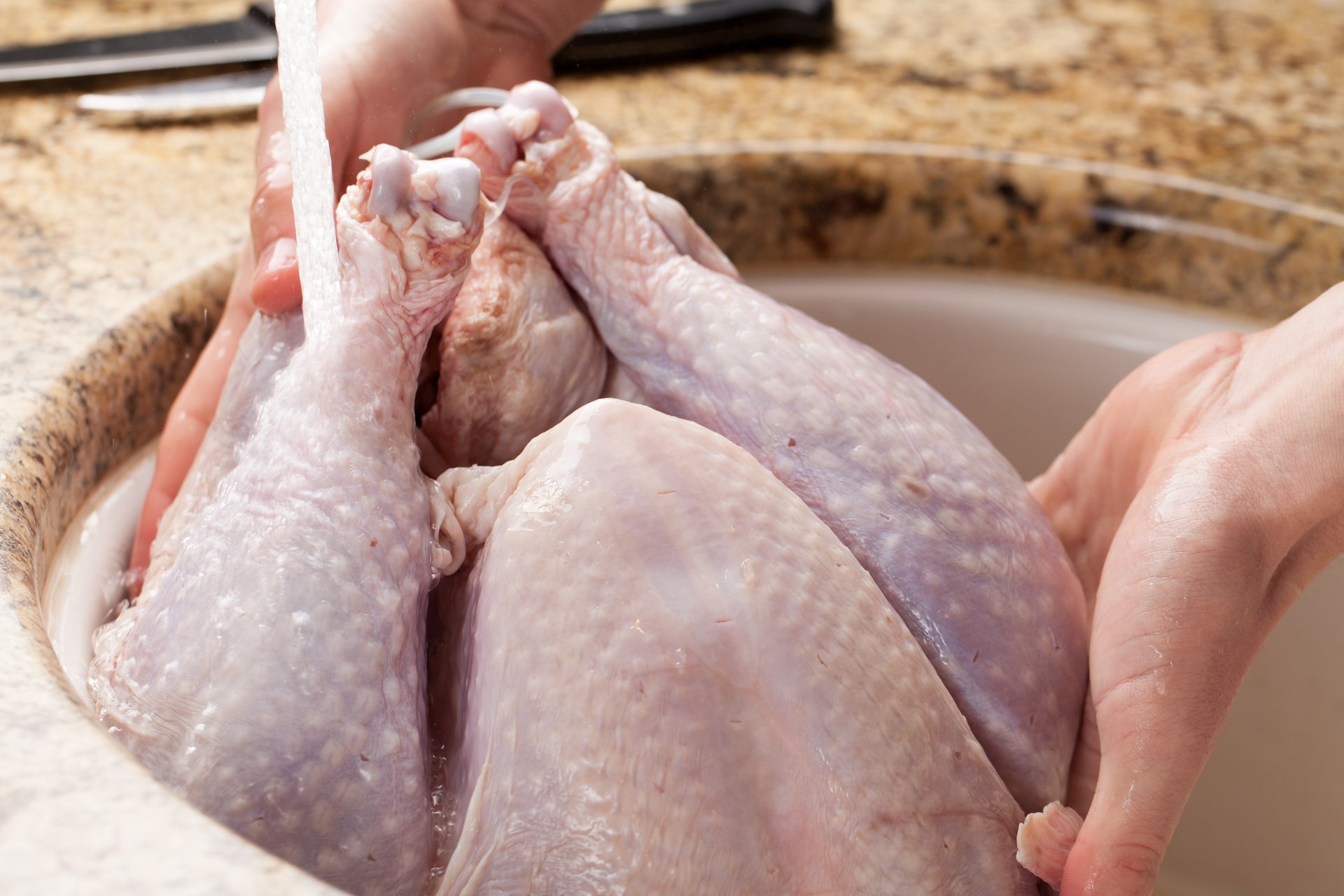
If you don’t want to gobble up any potentially deadly bacteria along with your turkey this Thanksgiving, the federal government has some advice for you.
The U.S. Department of Agriculture issued an announcement about food safety this week, focusing on preparation of the traditional Thanksgiving entree.
Al Almanza, deputy undersecretary for food safety at the USDA, notes that unsafe handling of food like poultry as well as undercooking it can result in foodborne illness.
Almanza continues:
“Turkeys may contain Salmonella and Campylobacter, harmful pathogens that are only destroyed by properly preparing and cooking the turkey.”
The USDA’s safety tips for your Thanksgiving entree include:
- Don’t wash turkeys (or other raw poultry or meat). According to the feds, 68 percent of the public washes whole raw turkey — which can cause bacteria on the bird to spread up to 3 feet away from it.
- Defrost frozen turkey safely. That means in the refrigerator, in cold water or in the microwave, according to the USDA.
- Use a meat thermometer to ensure your turkey (or other raw poultry, meat or seafood) is cooked to a high enough temperature to kill any bacteria. The USDA advises checking a whole turkey in three spots: the innermost part of the thigh, the innermost part of the wing and the thickest part of the breast. All three should register 165 degrees Fahrenheit.
You may also want to avoid bagged salads. They can be a uniquely effective breeding ground for Salmonella bacteria.
For more food safety tips, check out “7 Keys to Dodging Deadly Bacteria Lurking in Your Food.”
Are you among the 68 percent of Americans who wash their turkeys? Let us know below or on Facebook.




Add a Comment
Our Policy: We welcome relevant and respectful comments in order to foster healthy and informative discussions. All other comments may be removed. Comments with links are automatically held for moderation.